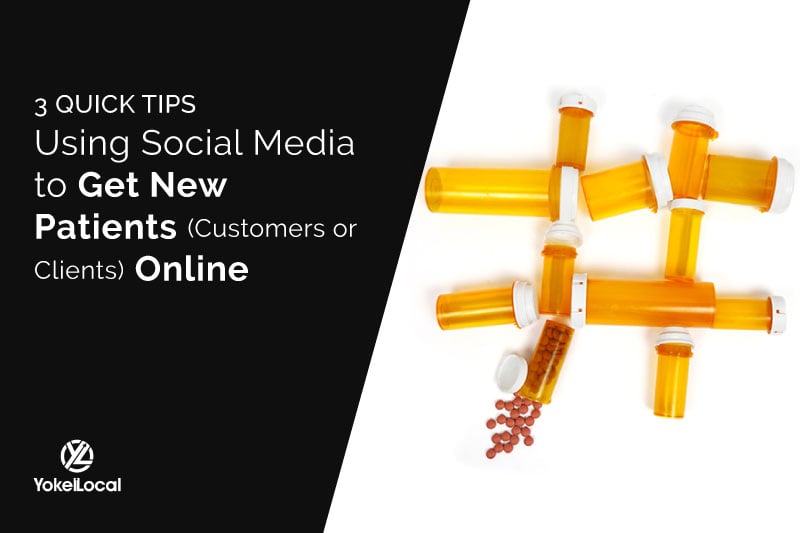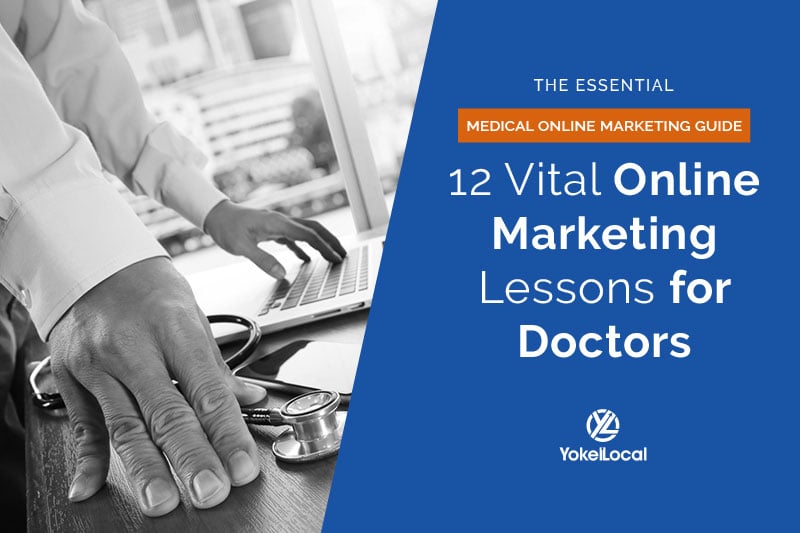The internet has completely changed the way that savvy healthcare practitioners approach marketing. Traditional methods of marketing your medical practice aren't obsolete, but their usefulness is fading in favor of online marketing strategies.
In spite of the benefits internet marketing offers to healthcare; it comes with a host of new challenges. Fortunately, when armed with the right information, your medical practice can succeed in the digital age.
In addition to marketing, the internet has changed the healthcare industry at all levels.
We are currently seeing an explosion of innovation in the areas where technology and healthcare meet.
The following are 3 of the most significant changes we've seen so far.
#1 - Patient Reviews
According to research in 2015, nearly 70% of consumers read online reviews before making a purchase. However, online review research isn't limited to purchasing a new laptop or automobile -- people also look for reviews of potential doctors and other healthcare professionals.
In 2013, research found that about
8 out of 10 patients said online reviews influenced their willingness to be treated by a doctor.
85% of those people said they aren’t comfortable choosing a doctor who has a one-star rating for more than 10% of the reviews. In fact, online reviews are so powerful that 72% of consumers say they trust online reviews as much as personal recommendations from friends and family.
Essentially, online reviews are as persuasive as traditional, word-of-mouth marketing. This is good news if your medical practice has positive reviews online, but surely you can see the potential for serious problems.
Often times, anyone can publish reviews about you -- including disgruntled former employees and envious competitors.

Marketing elective medical procedures is challenging enough, but it becomes nearly impossible if you have a handful of fraudulent reviews about your practice online.
Unfortunately, your practice has little control over what is said about you online and protecting your reputation is crucial.
Related: Introduction to Online Reputation Management for Medical Practices
#2 - Electronic Medical Records
Another area of healthcare that has been transformed by the internet is how medical records are created, stored, and shared.
Paper records have been replaced by electronic health records (EHR).
In 1996, the Health Insurance Portability and Accountability Act (HIPAA) was passed, which added stricter regulations for electronic records than previously existed for paper records. HIPAA protects the following information of patients:
- Information doctors and nurses add to the electronic medical record,
- Conversations between a doctor and a patient that may have been recorded
- Billing information Electronic records have streamlined the entire process from documenting the visit to handling the billing process.
It's much easier to share access with patients without having to fax or mail the documents like the old days. Another benefit? Patient data can be used for the use of marketing emails and text reminders.

Healthcare marketing has finally gone completely digital. One of the few issues is that there are so many different services available, and all doctors don't use the same system.
Patients have to manage several accounts, one for each of their different doctors. This might become cumbersome over time.
#3 - Patients Engage Directly With Their Physician Online
It used to be difficult for patients to reach their physician outside of the office, but that's quickly changing. As more medical practitioners turn to digital marketing to promote their practice, online engagement with patients will become expected.
In the past, doctors might write a column in their local paper or be interviewed in a news story, but today doctors are publishing their content on their own websites.
Now you can easily find doctors with active blogs, YouTube channels, podcasts, and an active social media presence where they interact directly with existing and potential patients.
All of these online marketing channels revolve around the medical practice website, which is why having a functional and beautiful website is crucial for promoting your healthcare services.

You might not want to start your own podcast or spend several hours a day on social media, but having a great website is mandatory. Fortunately, it's much easier than you think to have an amazing website built.
Think of it this way, your website is like your medical office reception area, and it's open 24/7!
Related: 4 Key Ingredients of a Patient-Attracting Medical Website
We've put together a guide specifically for you to help you make your medical practice website the best it can possibly be. Check out these 30 Greatest Online Prescriptions to market your medical services today!













